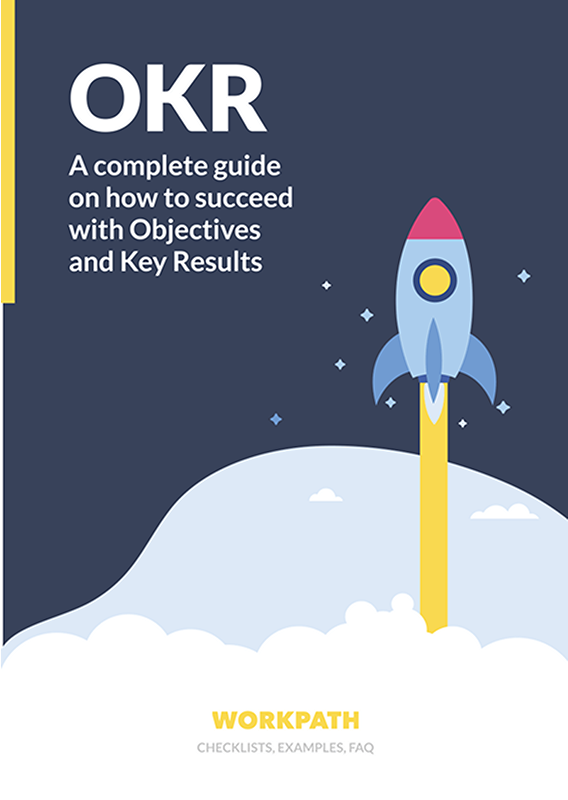Interview with Pharma expert Doru Dinu
We had the opportunity to interview Doru Dinu, a Pharma industry expert from Romania with over 15 years of experience as a trainer and consultant for some of the largest players in the industry. During our conversation, Doru shared with us the latest developments in the pharmaceutical industry resulting from the economic downturn and offered insights on how pharmaceutical companies should respond to these disruptions regarding the execution of their strategy.
Workpath: Can you tell us something about the biggest challenges Pharma companies are currently facing in terms of strategy execution? What makes it specifically hard for Pharma companies to execute their strategy efficiently?
Doru: I would say the biggest issue is actually the strategy itself. Many external observers might say that the pandemic was a great time for Pharma companies and that they’re the ones who profited most from it. However, the reality is that there was a huge impact on the whole business and that the recovery has been very, very uneven. For many players in the industry this has been a pretty rough time.
I think right now, the biggest issue the Pharma industry is facing is very much related to how relevant these companies can stay in this changing economic climate - both in terms of their business model itself as well as their product pipeline.
The traditional model of producing a few drugs every few years in order to stay relevant in the market is no longer sustainable for many companies as the current product pipeline doesn’t look that great for many Pharma giants. Some of them try to avoid this by pouring a lot of money into R&D, some others rather look into mergers and acquisitions or joint ventures, and others are looking for strategic partnerships with different players in the market.
It is a time of transformation and there is still a lot of turmoil in the industry. So the biggest challenge is the lack of clarity and focus on which direction to go.
Summary:
- The pandemic has hit the Pharma industry quite hard and the recovery has been uneven
- Staying relevant in terms of business model & drug pipeline is the biggest challenge
- Pharma companies need to find new, innovative ways to gain back their strategic clarity and focus
“There's a lot of pressure on keeping costs down and controlling them. [...] The ultimate goal is to be more patient-centric, more connected and at the same time lower overall costs.”
Workpath: What are the effects of the economic downturn that can be observed in the Pharma industry?
Doru: I would say that, besides the downturn in itself, there's a couple of increased pressure angles: There's a lot of pressure on keeping costs down and controlling them. Combined with the fact that the whole supply chain is still heavily disrupted due to the pandemic and the events of 2022, this is leading to some concerns about the viability of certain products on the market.
On the other hand, there's also a lot more interest all of a sudden in trying to create economies of scale; trying to increase efficiency, for example through the use of telemedicine, IoT-connected devices and more targeted and customized treatments. Pharma players, but also governments, are working towards improving healthcare by not only enhancing the quality of life for individuals through pharmaceuticals, but also by investing in preventative measures that may have a higher cost upfront but ultimately lead to a significant decrease in treatment costs overall. So the ultimate goal is to be more patient-centric, more connected and at the same time lower overall costs.
Another important factor is mental health. More and more companies are focusing on creating antidepressants as well as non-medical approaches to addressing mental health issues. This is an area that is becoming increasingly important as rates of anxiety and depression continue to rise. The economic pressure and uncertainty that comes with it will definitely have an increasing impact on this.
Summary:
- Keeping costs down has become one of the most important priorities
- Finding more patient-centric but also efficient solutions is the main goal
- Pharma companies are now increasingly focusing also on the topic of mental health
Workpath: You were talking about finding more efficient solutions and products when it comes to treating patients or finding ways of being more connected to them. But what about internal efficiencies in a Pharma company? What can they do to become more efficient in their own strategy execution processes?
Doru: In the last couple of years there have been quite a few companies in the field who have started looking at transforming the way they do business. The overall idea is to create a leaner, more effective and more efficient structure internally. Typically, what would happen in many Pharma companies is quite a siloed approach with disconnected business units. And right now, as I’ve mentioned above, the pressure is to do more and to do better with less.
That’s why many Pharma players are using agile methodologies to balance the need for control in a heavily regulated industry with the need for flexibility and agility. Many companies are trying to be innovative within the confines of the regulations. In the past, large organizations would buy smaller companies to achieve synergies in logistics and R&D but it often didn’t pay off. Now, the focus is on integrating separate units effectively and creating both horizontal and vertical alignment.
Summary:
- The typical big Pharma organization has many silos and disconnected business units
- Agile methodologies are supposed to find a way to increase flexibility despite strict regulations
- The focus now lies on creating alignment between the different business units
"There are no more low-hanging fruits. [...] That's why Pharma organizations need to have a clear vision and really focus on the processes around their cash cows which are already on the market."
Workpath: What else should Pharma organizations do to mitigate risks to avoid being just another industry that is heavily hit by the economic downturn and to stay ahead of it?
Doru: The predictability in a field like this is actually very, very low. In addition to that, the complexity in the Pharma sector and the development of new products is increasing steadily. There are no more low-hanging fruits. Especially in the area of rare diseases or neurodegenerative diseases we’re talking about billions of dollars, thousands of compounds and decades of research that you need to invest. At the same time, it is incredibly hard to control any part of the R&D process as it is heavily regulated and sometimes it is simply a matter of luck whether you’ll succeed or not.
That’s why Pharma organizations need to have a clear vision and really focus on the processes around their cash cows which are already on the market. Once a product comes out of the lab, that’s where Pharma companies can improve and bring products on the market more efficiently by becoming more agile, more adaptable and reacting faster to changing market conditions.
Summary:
- The Pharma industry is becoming more and more complex
- Everything related to R&D is heavily regulated and difficult to control
- Especially the processes after and around the launch of a new drug can be more efficient and help to become more adaptable
“If Pharma companies don’t act now and become more agile in their ways of working, the risk is very high that they will even more turn into siloed, slow-moving mammoth organizations.“
Workpath: Can you say what will happen if Pharma companies don't act now and don't start transforming their ways of working and becoming more agile?
Doru: The biggest problem in the pharma industry is the disconnect between the value that is being created and the moment when it appears on the company's balance sheet. The pipelines for developing new drugs are long and can take years or even decades. If Pharma companies don’t act now and become more agile in their ways of working, the risk is very high that they will even more turn into these siloed, slow-moving mammoth organizations which then hope that through sheer inertia and volume of investment something good is bound to happen. Innovation in such an environment is impossible.
On the other hand, there’s a risk of becoming this very lean sort of company that all of a sudden finds itself without a product. To mitigate this risk, companies must have a clear understanding of their strategies and where value is coming from by not losing sight of the long-term gains.
Summary:
- There is a big disconnect between the value that is created and the moment it gets financially visible
- Pharma organizations need to become more agile because investing high amounts is not enough anymore to be innovative
- A clear strategy understanding is necessary to not lose sight of long-term goals
Workpath: Many Pharma companies restructure their business units as soon as important patents expire and assign their employees to new important projects. Now, during this economic downturn, additional restructurings may be necessary to become more cost-efficient. What do Pharma organizations need to do in order to not lose the engagement of their employees with all these structural changes?
Doru: From a business perspective, this is something you can plan ahead and that usually does not take you by surprise. Companies that are strongly focused in their product range and drug pipeline often have to let go of employees. However, broader Pharma organizations usually are able to move their talents to another business unit. Sometimes you even have a whole business unit that only deals with the products that have lost patent protection. In this case, one part of your company works on innovative drugs that are patent protected. And you have another part of your company that maintains them and still services them after they've lost protection.
But it’s crucial for Pharma companies to understand that they have to maintain direction and purpose for the employees who are “moved around”. This will give them a sense of trust and safety. That’s why it’s important to give them new goals and show them how their work is still serving a purpose to the company’s strategy and success, even if the product they used to work on is not patent-protected anymore.
Summary:
- It’s crucial to give your employees a sense of trust and safety after restructuring business units
- Setting new goals and showing them how their work is purposeful needs to be a main priority to not lose talent
Conclusion
All in all, the Pharma industry has not been spared by the effects of the changing economic climate. It is a time of transformation and there is still a lot of turmoil in the industry, resulting in intense pressure to increase efficiency and to keep costs down as much as possible. The biggest challenge in doing so is the lack of clarity and focus on which strategic direction to follow. This is why Pharma organizations now need to break up existing, rigid structures and silos and align their teams in a more agile and strategic way. Stay tuned for our next article of the Workpath Magazine to find out how OKRs and Outcome Management come into play here.





